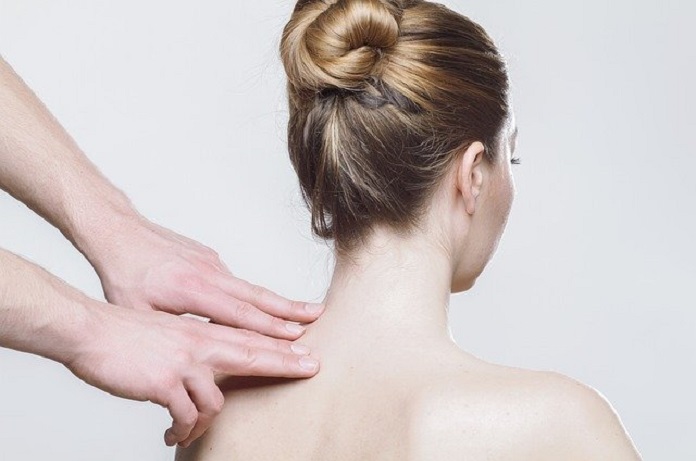Researchers measured physiological and psychological changes in the body to investigate whether short simple massage techniques boost relaxation.
The body’s mental and physical responses to stressful situations (such as increased heart rate, blood pressure, and brain alertness) are important for preparing the body for action. However, if these stress responses become chronic this can have negative consequences for health. The body has an inbuilt “relaxation system”, the parasympathetic nervous system (PNS), which counterbalances the stress response. The PNS slows heart rate, reduces blood pressure, and has other relaxation effects. Activating the PNS when we feel stressed can help to restore balance and increase physical and psychological relaxation. So far, there are few standardized ways to scientifically assess the effectiveness of different relaxation methods. Researchers at the University of Konstanz, Germany, developed a standardized method to assess whether two simple massage techniques boost relaxation through their effects on the PNS. They recently published their findings in Scientific Reports.
Parasympathetic nervous system is part of the body’s relaxation response
The researchers recruited 60 healthy female volunteers who were randomly assigned to one of three groups: 10-minute moderate-pressure head-and-neck massage (designed to actively stimulate the vagus nerve, a major component of the PNS); 10-minute soft touch neck-and-shoulder massage (using soft stroking movements, to test if touch itself can be relaxing); 10-minute rest-only control group (subjects rested their head on the massage table). Physical relaxation was assessed by measuring heart-rate variability (HRV). This is the variation in time between each heart beat and is a measure of PNS activation. The higher the HRV, the greater the level of PNS activation and relaxation. Psychological relaxation was measured using a questionnaire asking the participants to rate their mood and stress levels before and after massage or rest treatment.
Physical and psychological relaxation significantly increased in all three groups, including the control group. In the questionnaire, all participants reported that they felt more relaxed and less stressed than before the interventions. The HRV also increased in all three groups, but the effects were significantly greater in the two massage groups compared with the control resting group. Both massage techniques (moderate pressure and soft touch) produced similar increases in HRV.
Short simple massage techniques have measurable relaxation effects
The researchers were encouraged to find that short periods of simple massage, or even rest, could produce measureable effects on the PNS and induce physical and psychological relaxation. “You don’t need a professional treatment in order to relax. Having somebody gently stroke your shoulders, or even just resting your head on the table for ten minutes, is an effective way to boost your body’s physiological engine of relaxation,” said Maria Meier, lead author of the study.
The researchers have developed a standardized way of testing relaxation therapies which could be used to evaluate other relaxation techniques such as breathing exercises or meditation. Although these initial findings need further investigation, this method could help to identify effective interventions for preventing stress or treating people suffering from stress-related illness.
Written by Julie McShane, MA MB BS
References:
1. Meier M, Unternaehrer E, Dimitroff SJ, et al. Standardized massage interventions as protocols for the induction of psychophysiological relaxation in the laboratory: a block randomized, controlled trial. Scientific Reports 10, 14774 (2020). https://doi.org/10.1038/s41598-020-71173-w
2. University of Konstanz, Press release 18 Sept 2020. Ten minutes of massage or rest will help your body fight stress. https://www.eurekalert.org/pub_releases/2020-09/uok-tmo091120.php



